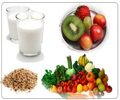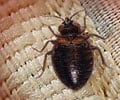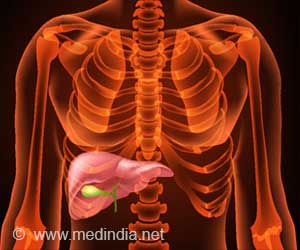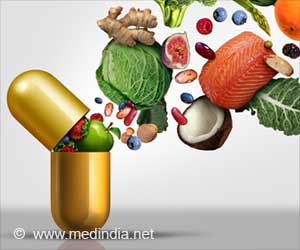- Chitin, found in insect exoskeletons, activates the immune system and may help counter obesity
- The immune system plays a crucial role in chitin digestion, even in the absence of gut bacteria
- Mice that couldn't break down chitin had reduced weight gain, suggesting potential metabolic benefits
Fiber from crustaceans, insects, mushrooms promotes digestion
Go to source).
Chitin Consumption and Its Impact on Obesity
The researchers, led by Steven Van Dyken, Ph.D., an assistant professor of pathology and immunology, discovered in mice that eating chitin, a dietary fiber found in insect exoskeletons, mushrooms, and crustacean shells, activates the immune system. An active immune response has been associated with decreased weight gain, lower body fat, and resistance to obesity.“Obesity is an epidemic,” Van Dyken said. “What we put into our bodies has a profound effect on our physiology and on how we metabolize food. We're investigating ways to counteract obesity based on what we learn about how the immune system is engaged by diet.”
The study was published in Science.
Link Between Chitin and Immune System
The immune system is well known for protecting the body from a variety of threats such as bacteria, viruses, allergies, and even cancer. The researchers discovered that a certain arm of the immune system is also involved in chitin digestion. Stomach distention following chitin consumption stimulates an innate immune response, causing stomach cells to increase the production of chitin-degrading enzymes known as chitinases. It should be noted that chitin is insoluble (unable to dissolve in liquid) and hence requires enzymes and strong acidic conditions to break down.The trials were carried out in germ-free mice lacking intestinal bacteria by Do-Hyun Kim, Ph.D., a postdoctoral research associate and first author of the article. In the absence of bacteria, his findings reveal that chitin stimulates immunological responses.
Chitin Digestion and Its Unforeseen Interplay with Gut Bacteria and Immunity
“We think chitin digestion mainly relies on the host’s chitinases,” Van Dyken said. “The stomach cells change their enzymatic output through a process we refer to as adaptation. But, surprisingly, this process is happening without microbial input, because bacteria in the gastrointestinal tract are also sources of chitinases that degrade chitin.”Van Dyken discovered that dietary chitin affected the bacterial makeup in the lower gastrointestinal tract of mice with intestinal bacteria, implying that gut bacteria adapt to chitin-containing food after it leaves the stomach.
The researchers discovered that when chitin triggered the immune system but was not digested, it had the greatest impact on fat in mice. Chitin was also administered to mice fed a high-fat diet. Some mice could not manufacture chitinases, which are enzymes that break down chitin. When compared to mice who didn't eat chitin and those who did but couldn't break it down, those who couldn't break it down gained the least amount of weight, had the lowest body fat measures, and resisted obesity.
The mice still profited metabolically if they could break down chitin, but they adapted by overproducing chitinases to obtain nutrients from chitin. Van Dyken and his colleagues intend to test their findings in humans next, to discover if chitin may be added to human diets to help control obesity. “We have several ways to inhibit stomach chitinases,” he said. “Pairing those approaches with a chitin-containing food might have a very real metabolic benefit.”
Reference:
- Fiber from crustaceans, insects, mushrooms promotes digestion - (https://medicine.wustl.edu/news/fiber-from-crustaceans-insects-mushrooms-engages-immune-system-to-promote-digestion/)
















